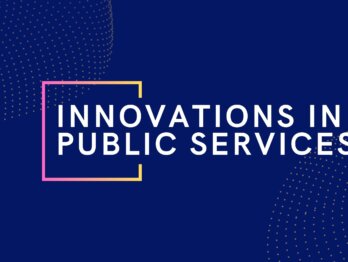Blockchains Unchained Report: A Call for Comments

This blog was authored by former intern, Théo Bourgery
OPSI is seeking your comments and edits on a draft working paper “Blockchains Unchained: The Implications of Blockchain Technologies for the Public Sector”.
Let us know what you think by 20 March!

Blockchain technology has evolved from a niche subject to the hottest tech disruption buzzword, but there is still a lot of confusion around the subject. Without a clear understanding about what blockchains are, their public sector impact is sometimes misunderstood, and more often ignored completely. As with most exploration of disruptive technologies today, technical complexity, risk, security, and value are the leading questions. The public sector needs to understand and respond to these questions in an informed way to truly engage with the potential of blockchains for government operations.
In light of this complexity, and in an effort to build on the findings of the Embracing Innovation in Government: Global Trends 2018 and 2017 reports on innovation trends, the Observatory has developed a primer on blockchain technologies in the public sector. This is intended to guide public servants to find answers to the most common questions we hear when discussing this technology in government:
- What are Blockchains?
- How do they work?
- What can they practically do?
- How have Blockchain initiatives already been applied in government, and what are the results?
- What challenges do governments face with this new technology?
The primer is a document designed to assist public servants with limited knowledge about blockchains to orient themselves about the subject, develop a working understanding of the technology, and to consider possible, practical applications of it. It is by no means comprehensive nor does it attempts to fully uncover the potential value of blockchains in government. It is a compass for public servants to orient themselves to better understand the technology, and how it may be applied in specific governmental services. It aims to bring clarity on an often-misunderstood topic, and to explore practical ways forward.
We are now inviting developers, policy-makers, regulators and interested public servants to provide us with comments on this initial draft. These inputs can take many shapes and forms:
- Do you see any missing information, or key facts and figures you would like to add?
- Is anything unclear or missing? How would you better present it?
- Do you know of any Blockchains initiative being implemented that cover potential uses not already covered?
- Are there any challenges you may wish to add or remove?
We aim for this guide to be a truly participative one; a piece of work written by public servants for public servants.
With this in mind, we invite you to add your comments and edits into the following DropBox Paper collaborative documents (split in half due to character limitations):
If you prefer, you may also download a .docx version of the report for editing in tracked-changes and comment boxes (please send as an attachment to [email protected] by the deadline), or a .pdf version for sharing.
My time at OPSI has come to an end while I pursue a master’s degree at the London School of Economics, so my colleague Jamie Berryhill will be picking up this report and incorporating your feedback. Should you have any question, please feel free to contact him here.
Connect with OPSI
Interested in public sector innovation? Feel free to get in touch with us at [email protected] or @OPSIgov. We also encourage you to join our OPSI LinkedIn community to exchange ideas with fellow innovators and our newsletter to receive innovation updates.











